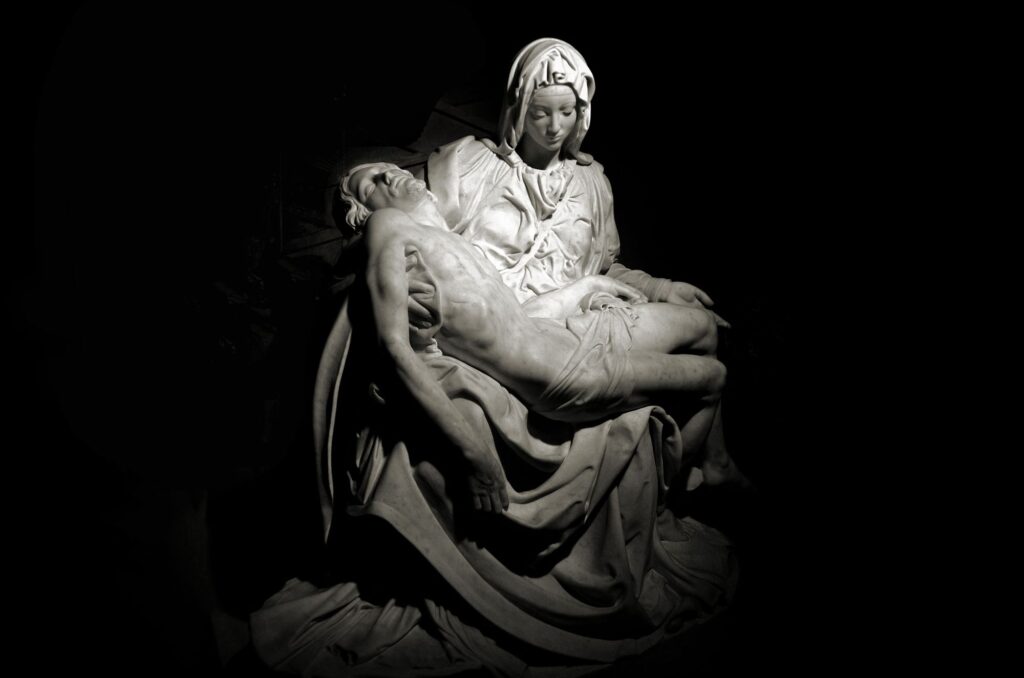Theme: DEATH IS NOT OUR END
Readings: Wisdom 2:12, 17-20 / James 3:16-4:3 / Mark 9:30-37
25th Sunday in Ordinary Time
According to today’s first reading (taken from the Book of Wisdom), the wicked planned to end the life of the righteous man. They said: ‘let us condemn him to a shameful death’ (Wisdom 2:20). Similarly, about 2,000 years ago, some wicked religious leaders planned to end the life of the most holy person who ever lived – our Lord Jesus Christ. In both cases, the wicked persons thought that death was the end of every person. However, Jesus Christ, both in last Sunday’s and this Sunday’s gospel readings, mentioned his resurrection when he predicted his death. Beloved, in Jesus Christ, death is not our end.
This notwithstanding, there are still people who kill others thinking that death ends the life of a person. Thus, we have cases of a worker killing his colleague either through a physical or spiritual means, a politician contracting a gang to assassinate a fellow politician, a businessman eliminating a competitor, etc. All these people act thinking that death ends one’s life. This is, however, far from the truth; for there is life and, indeed, everlasting life after death.
Life after death could be illustrated with the traditional ending of a movie and the life of the actors and actresses thereafter. Traditionally, the phrase ‘THE END’ appears at the end of a movie. This, however, does not mean the END of the actors and actresses, not even the END of those who died in the movie; for soon we see them active in another movie or in actual life. Similarly, death is not our end but the beginning of another state of life.
Furthermore, as someone may appear sad and poor in a movie but may be a happy-rich person in real life, and vice versa, so is life after death. That is, some of us may experience problems and poverty in this life but God will make us happy and rich forever in heaven. On the other hand, some may enjoy the good things of this life but failing to be faithful to God, they would experience the pain and poverty of hell.
Beloved, it is through only Jesus Christ that God changes our fate for better; it is through Him that our life after death is made forever joyful in heaven. Yes, He who came to suffer and die, taking upon Himself the misery of humankind, arose on the third day to demonstrate that in Him, death is not our end, but the beginning of an ineffable glorious life!
It is, therefore, no wonder that St. Paul, who initially persecuted Christians for teaching that Jesus had risen from the dead, would, after his own encounter with the Risen Lord, boldly proclaim that: ‘All I want is to know Christ and the power of His resurrection’ (Phil. 3:10). Then, he would excitedly add that: ‘our citizenship is in heaven. And we eagerly await a Savior from there, the Lord Jesus Christ, who, by the power that enables him to bring everything under his control, will transform our lowly bodies so that they will be like his glorious body’ (Phil 3: 20-21).
The message of our citizenship in heaven reminds me of what a (Ghanaian) friend told me when I once visited him in UK. I had asked him if he were a British citizen after many years in UK. He then answered, ‘Father, because I have the ambition of becoming an MP [Member of Parliament] in Ghana, and dual citizenship would disqualify me, I have only resident and work permits in UK.’ Beloved, similarly, let’s retain only resident and work permits on this earth, while we keep our citizenship in heaven, where we aspire to become MPs, namely, Members of Paradise.
Beloved, we should campaign to become MPs of heaven. This campaign is done not by TV adverts, posters, public speeches, etc., but by faith and a good life style.
We are elected as MPs (Members of Paradise) not by people casting the majority of votes for us, but by God who examines the genuineness of our faith (our voting paper) and life style (our thumb print).
Finally, I pray that by our genuine faith and good lifestyles, we will always campaign for the Membership of Paradise, and God will graciously elect us into His Divine Presence, not for only a short term of four or eight years, but for all eternity, Amen!
By Most Rev. John Kobina Louis
